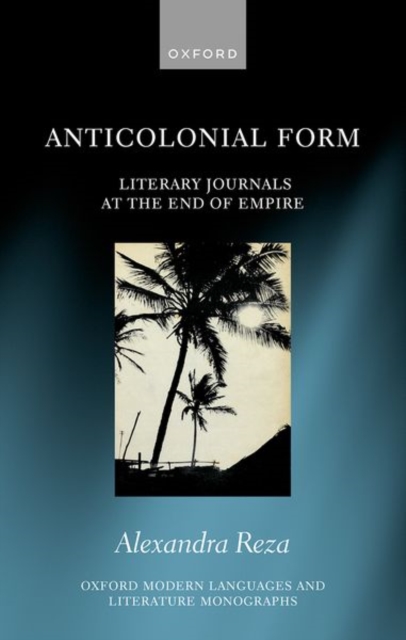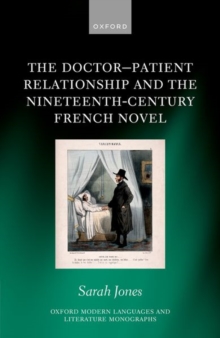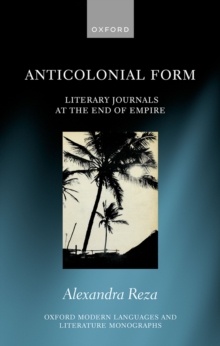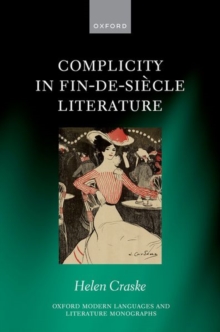
Anticolonial Form : Literary Journals at the End of Empire Hardback
by Alexandra (Lecturer in Comparative Literatures and Cultures, Senior Lecturer in Comparative Li Reza
Part of the Oxford Modern Languages and Literature Monographs series
Hardback
Description
Anticolonial Form: Literary Journals at the End of Empire addresses the relationship between culture and politics in two journals published in Europe by African writers: Présence Africaine, launched in Paris in 1947, and Mensagem, published between 1948 and 1964 in Lisbon.
Grounded in extensive archival work, the book argues for a comparative and transnational approach to postcolonial literary studies, for the significance of the literary journal as a key form in the development of African writing in French, Portuguese, and English, and for a historically and geographically contingent understanding of the relationships between literature, culture, and politics. This book takes up the idea of articulation to bring forward the contingent and fugitive connections that networks of literary journals fostered between francophone, anglophone, and lusophone writers in the conjuncture of decolonization in the 1950s and 1960s.
It argues that comparison as a praxis and a method was central to the anticolonial charge of those journals, on whose pages we see an iterative back and forth between writing from and about different parts of the colonial world, a recursive effort to establish how ideas and analyses developed in one part of the colonial world could travel, and be adopted and adapted in others Many scholars have argued convincingly that the institutionalized practice of comparison in the academic field of comparative literature is itself imbricated with histories of colonialism.
Reza's argument takes on a particular significance in the context of that critique as the anticolonial comparison on which she focuses offers a different tradition of relational praxis from which to think about connection and comparison itself.
Information
-
Available to Order - This title is available to order, with delivery expected within 2 weeks
- Format:Hardback
- Pages:304 pages
- Publisher:Oxford University Press
- Publication Date:22/02/2024
- Category:
- ISBN:9780198896319
Information
-
Available to Order - This title is available to order, with delivery expected within 2 weeks
- Format:Hardback
- Pages:304 pages
- Publisher:Oxford University Press
- Publication Date:22/02/2024
- Category:
- ISBN:9780198896319










